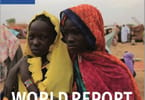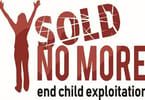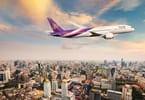His Royal Highness Prince Sultan bin Salman bin Abdulaziz Al Saud, the chairman of the board of directors of the Saudi Arabia Commission for Tourism and Antiquities who reports directly to the Saudi Arabian King Abdullah bin Abdul Aziz Al Saud, currently oversees the formation of a modern national tourism administration responsible for the planning, development, promotion and regulation of the tourism industry in his country, tourism investment is peak right now in the kingdom.
“There are a large number of investment opportunities in Saudi Arabia. We have a robust tourism program and long-haul perspective for the industry. We have the mandate to run the heritage sites. With new perspectives, we want to tap into this cultural side of Saudi Arabia with the help of government incentives – where people can invest in smaller rural areas or untapped, ineffective smaller regions in the country which cannot start on their own,” said Prince Sultan, who is occupied with his five-year strategic plan that gives Kingdom of Saudi Arabia (KSA)’s tourism industry a boost. Further, the prince is focused on ushering major programs for developing historic villages of Saudi Arabia. This year the commission launched into the process of reviving the old towns to match the idea of developing inns along the country side in a bid to lure guests.
So, can Saudi Arabia possibly catch up with or overtake Dubai?
Edward Burton, president and managing director, US-Saudi Arabian Business Council (US-SABC) said not really, during the first Cityscape USA conference in Manhattan. However, Saudi remains unprecedented as far as having high liquidity in the market. “It is quite a shame that many in the US overlook what transpires in Saudi whose GDP is over $400 billion compared to the United Arab Emirates’ $200 billion. Saudi Arabia prides a real estate market value of $267 billion in 2007 with 4.5 million housing units will be needed in the next five years. In 2012, the current $347 billion in investment opportunities will have gone up to $1.3 trillion,” said Burton, giving a sense of the Kingdom of Saudi Arabia becoming the economic muscle of the Gulf, playing catch up in the residential and commercial side of the market due to its large youthful population – 70 percent of whom are under the age of 30.
Walter Kleinschmit, founder and president of R2E Consultants said the KSA reminds him of Canada in the early ’70s. With a big market and a huge youthful population, there are a lot of opportunities, predominantly in shopping center markets. “Saudi is nothing compared to other countries. The spending power is immense,” he said.
Tourism potential in Saudi is growing. Visa laws have been changed to allow religious tourists or pilgrims to extend their visa for three months for shopping, added Kleinschmit.
Saudi’s per capita income is $60,000 with rising income levels of $15, 394 contributing to GDP. Total foreign direct investments ran up to $18.1 B in 2007 despite a 2 percent increase in inflation rate from 9 percent to 11 percent last year. Six economic cities in Saudi are estimated to add $151 billion to the GDP of the KSA. Spanning the desert, each city of 567 sq. kms or 2191 miles gives birth to seven financial districts generating $110 billion worth of investment opportunities. Ten industrial zones are already open, with five in the pipeline. For Saudi’s burgeoning population, the required epicenters for real estate and future developments will be Riyadh, Jeddah, Mecca and Medina, and the Eastern Province.
The real opportunity lies in Saudi Arabia, echoed Stephen Atkinson, CEO, Arabian Real Estate Investment Trust. “It has the population approximately the same as Australia’s; as well as Australia’s land mass and characteristics (people cannot live in the city center).” Atkinson said there are three quarters of a million of backlog of dwellings today in Riyadh, which produces only 24,000 a year. There are no logistics for parks, no distribution centers, no courier service centers around the airports and ports. The kingdom is the land of opportunities.
“Infrastructure needs are so significant that about $1.5 billion in funds was set up recently. Sharia-compliant funds have also been set up for the first quarter next year in the region of $500-700 M of equity, unleveraged,” added Atkinson.
Saudi is the real market. Most of the capital of Dubai actually came from Saudi, disclosed Abu Chowdhury, partner &COO, Emerging Markets Partnership Middle East. “Saudi has a real economy. It has agriculture. It has industrial economy. But the Dubai experience has been a fantastic one for others to follow, in terms of what can be achieved by public-private partnerships and building of economy,” he said adding that Saudi has natural local demand.
In addition, in Saudi, there is 25 percent retail space potential. A huge lack of modern offices, infrastructure evidenced by the fact that only two office towers exist for 4.5 million people in Riyadh will catapult demand in weeks, not months.
Aside from bottomless pits of oil, mining, other export products, numerous industrial zones etc, Saudi is not only a breadbasket for many other produce for the rest of the world. While Saudi is now exporting wheat, Saudis also harness water today (which is much more valuable than oil), said Kleinschmit.
“But Saudi will never become Dubai because there’s this religious thing to it. However it does not stop Saudi to cater to its own population, to the natural process, the return on distribution, on housing and office space. It will always have an inherent demand,” said Chowdhury.
“Remember however if one were to do business in Saudi, one should not separate the Islamic background from the business. Islam is part and parcel of everything that goes on there over the last years leading up to the accession to the WTO in December 2005,” said Burton.
Today’s modern Middle East is seeing the greatest cities evolve at their doorsteps. “Indeed, they have the experience of Dubai they can duplicate. If the Americans don’t move in quickly enough, they will miss the train,” added Chowdhury.
“The Middle East is more western. It’s more American than America. When I walk in shopping centers in Riyadh, there are more, well established American brands there than you see in Bal Harbor in Miami. They have Western aspiration, consumer values, though there are religious, ethics and moral value differences of consumers describing the number one, underpinning of the economic drivers common to all,” said Kleinschmit.
“So far, the Saudi Government for Investment Authority has been ranked by the World Bank/ IFC as the 23rd easiest to do business with, compared to the UAE which ranks 68th in 2007. Saudi Arabia outranks most countries in the region as the easiest to do business in,” said Kleinschmit, adding, “Don’t be scared of it. Stop watching CNN or Fox News. Go there and see it for yourself.”
WHAT TO TAKE AWAY FROM THIS ARTICLE:
- His Royal Highness Prince Sultan bin Salman bin Abdulaziz Al Saud, the chairman of the board of directors of the Saudi Arabia Commission for Tourism and Antiquities who reports directly to the Saudi Arabian King Abdullah bin Abdul Aziz Al Saud, currently oversees the formation of a modern national tourism administration responsible for the planning, development, promotion and regulation of the tourism industry in his country, tourism investment is peak right now in the kingdom.
- With new perspectives, we want to tap into this cultural side of Saudi Arabia with the help of government incentives – where people can invest in smaller rural areas or untapped, ineffective smaller regions in the country which cannot start on their own,” said Prince Sultan, who is occupied with his five-year strategic plan that gives Kingdom of Saudi Arabia (KSA)'s tourism industry a boost.
- 3 trillion,” said Burton, giving a sense of the Kingdom of Saudi Arabia becoming the economic muscle of the Gulf, playing catch up in the residential and commercial side of the market due to its large youthful population – 70 percent of whom are under the age of 30.






















